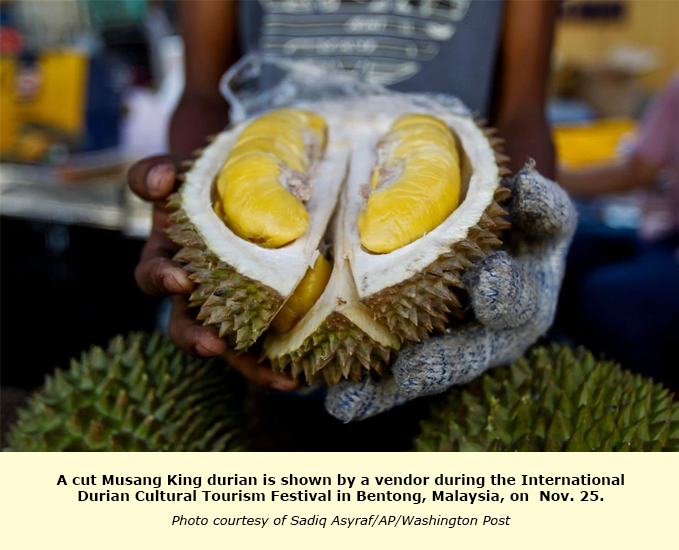Add “cause for a university evacuation in Australia” to the long list of reasons that durian may be the world’s most maligned fruit.
About 3 p.m. Saturday local time, Melbourne’s Metropolitan Fire Brigade sent out an alert about a chemical hazard at the Royal Melbourne Institute of Technology.

The smell of gas had been reported in a library on campus, the fire department said. A hazardous-materials team was dispatched to the scene to investigate “potentially dangerous chemicals” stored in the building. Amid fears of a gas leak, Victoria Police evacuated about 500 students and teachers from the library.
It’s tough to say whether the culprit was more or less frightening than what the alerts portended.
“After a comprehensive search, firefighters identified the smell was not chemical gas, but gas generated from rotting durian, an extremely pungent fruit which had been left rotting in a cupboard,” the Metropolitan Fire Brigade said in a statement titled “Rotten afternoon on campus,” just to drive home the point.
“The smell had moved around the building via the air conditioning system,” fire officials added.
Durian, for the uninitiated, are popular in many parts of the world, especially in Southeast Asia, but seldom eaten with such fanfare in the United States.
Everything about the fruit would seem to signal “STAY AWAY” to a human’s survival instincts: Its tough outer rind is covered with thorns so sharp that farmers often wear helmets when they harvest them from the trees.
And that smell.
“Best described as … turpentine and onions, garnished with a gym sock,” the food writer Richard Sterling declared, according to Smithsonian magazine.
“It’s like your freezer when you don’t clean it out,” one man said in a BuzzFeed video in which people tried durian, deemed “the smelliest fruit in the world,” for the first time.
Durian are just about synonymous with their repulsive odor, which (to be fair) has whiffs of sweetness that are immediately overwhelmed by notes of corrosion and rancid egg. (They are banned on Singapore’s subway system, as well as some hotels and trains in Asia.)
But fans of the stinky fruit swear by the sweet-yet-savory taste of the durian’s mushy pulp, which can be scooped out and eaten raw or used in a number of Southeast Asian recipes, especially in desserts.
As for the rotting durian left behind in a Melbourne university library cupboard, fire officials said Environment Protection Authority Victoria would handle its disposal.
Source: Amy B. Wang, The Washington Post
